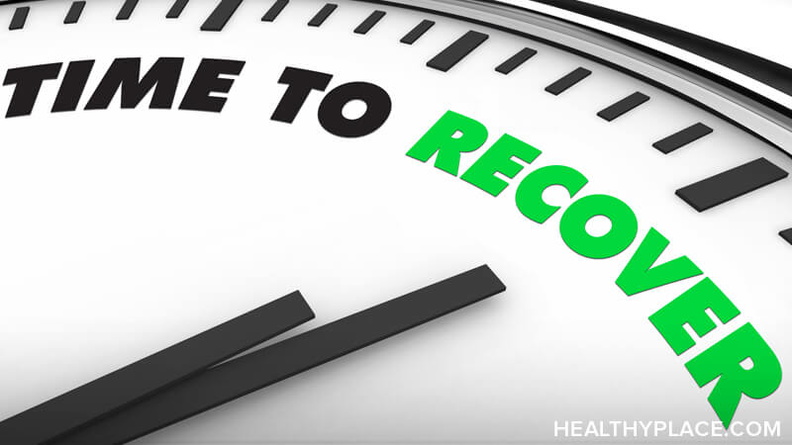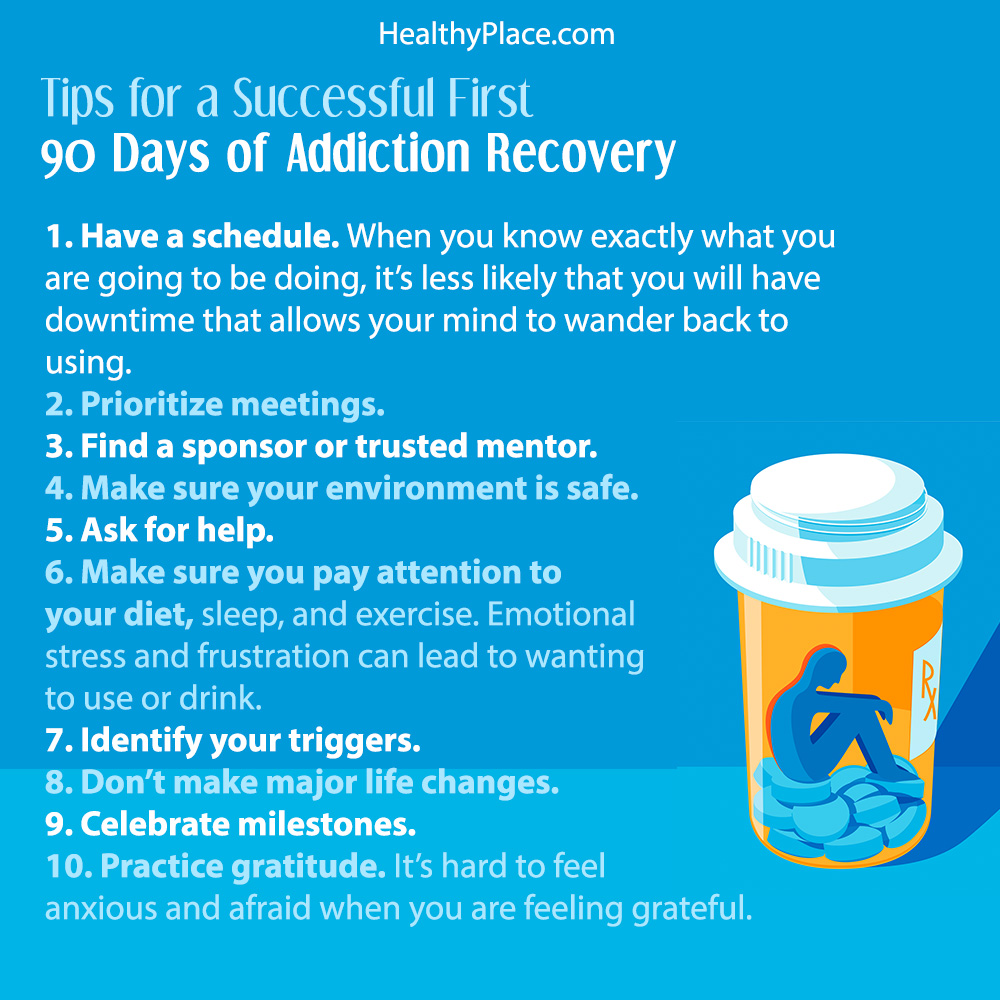10 Tips for the First 90 Days of Addiction Recovery

The first 90 days of addiction recovery are often the most critical. It is during these first few months that most relapses occur. You are very new to recovery, and even though you may have learned a lot about coping skills and relapse prevention if you went to treatment, you have not yet had the opportunity to put it into practice in your life away from rehab. Becoming comfortable at home without your drug of choice is something that takes time and patience, so it’s important to have a relapse prevention plan of action during these first 90 days of addiction recovery.
Tips for a Successful First 90 Days of Addiction Recovery
- Have a schedule. It’s important to have a list of what you are going to do and when to help you stay on track. You may find that it’s helpful to schedule everything – even the small things that you do automatically. When you know exactly what you are going to be doing, it’s less likely that you will have downtime that allows your mind to wander back to using.
- Prioritize meetings. If you attended rehab, you probably understand the importance of 12-step meetings in recovery. Most treatment facilities recommend that when you return home you attend 90 meetings in 90 days. It’s recommended for good reason – it keeps you immersed in recovery and provides you will valuable support. If you’re averse to Alcoholics Anonymous (AA), there are other recovery support groups available that you may find to be a better fit. The important thing is to find something and go regularly.
- Find a sponsor or trusted mentor. If you do attend a 12-step group like AA, then you should get a sponsor who will help you navigate the program and the 12 steps and be available to you if you are in crisis. If you choose another type of support group, then you can find someone there to maintain a relationship with and rely on for help.
- Make sure your environment is safe. It’s very important that you have a safe place to begin your recovery. That means that it needs to be free from anything that is related to your using or drinking. Things like alcohol, illicit drugs, drug paraphernalia, addictive prescription medication, etc. should not be anywhere around you, so they must be cleaned out as soon as possible. It’s a good idea to have someone else help you with this so that you don’t become tempted to drink or use.
- Ask for help. Hopefully, you have a spouse or another loved one who supports you and will help you through the first 90 days of addiction recovery and beyond. Don’t be afraid to ask them for help when you need it.
- Make sure you pay attention to your diet, sleep, and exercise. When you don’t feel well physically, it can cause emotional stress and frustration, and that can lead to wanting to use or drink. So, it’s essential that you make sure that you are getting enough sleep, eating healthy, and getting some type of exercise.
- Identify your triggers. It is especially crucial that you try to avoid triggers in your first 90 days of addiction recovery. Steer clear of people, places, and things associated with your past using or drinking. This is not the time for you to take any chances with your sobriety. Obviously, you cannot avoid every possible trigger, so you will have to learn to deal with them as they come up. However, it will not serve you well to test yourself early in recovery, so stay away from slippery places.
- Don’t make major life changes. In 12-step programs, it’s advised that you don’t make any life-changing decisions for the whole first year of recovery. That includes getting married or divorced, having a baby, starting a new relationship, changing jobs, moving, etc. Major life changes, even the positive ones, cause stress and anxiety, and those are precursors to relapse.
- Celebrate milestones. Beginning recovery is all about baby steps. So, celebrating milestones like 30, 60, and 90 days of sobriety is really important. You need to be able to recognize the progress you are making, and counting days is one way to do that.
- Practice gratitude. It’s easy to get caught up in the daily routine or in the challenges of brand new sobriety. Be sure that you take time each day to recognize the things that you are grateful for. Some people in recovery find it helpful to start a gratitude journal and list those things every day. It’s hard to feel anxious and afraid when you are feeling grateful.
What Works in the First 90 Days of Addiction Recovery
The first 90 days of addiction recovery may not be the hardest you experience, as life is constantly throwing challenges our way, but they are a time when you are just learning how to deal with things without booze or drugs so you need to be mindful that you are doing what you need to stay sober. The list above offers some things that I have found to be useful in recovery. You may find other things that work for you. The important thing is that you do what works for you and enjoy your new life in recovery.

APA Reference
DeLoe, J.
(2017, October 19). 10 Tips for the First 90 Days of Addiction Recovery, HealthyPlace. Retrieved
on 2026, March 5 from https://www.healthyplace.com/blogs/debunkingaddiction/2017/10/the-first-90-days-of-addiction-recovery
Author: Jami DeLoe
All chapters are very nice , written very patiencely and with experience.Thanks for real sharing.
